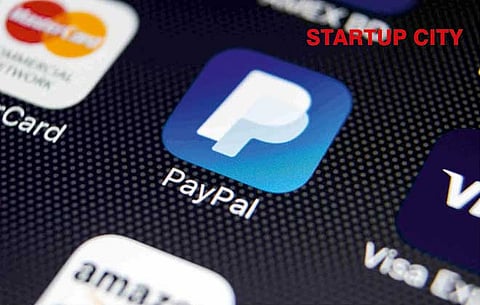

In today’s rapidly evolving digital landscape, choosing the most suitable payment gateway is essential for businesses that want to optimize their transaction operations. A payment gateway acts as a technological bridge that enables online payments by securely transmitting financial data between consumers and merchants. It plays a vital role in ensuring that payments are fast, secure, and reliable—helping businesses maintain customer satisfaction and trust.
To make an informed decision, it’s important to understand how a payment gateway operates. Here's a step-by-step breakdown:
Transaction Start: The process begins when a buyer selects a service or product and provides their payment details on the business’s website.
Encryption of Information: The gateway encrypts the customer’s financial data, safeguarding it during internet transmission.
Authorization Request: The encrypted payment information is sent to the merchant's processor or acquiring bank, which then requests approval from the customer's issuing bank.
Approval Relay: The issuing bank sends back an approval or denial response through the processor and gateway.
Finalization: Once approved, the transaction is completed, the merchant receives the funds, and the customer gets a confirmation notice.
Payment gateways are indispensable in today’s e-commerce environment. They offer critical functions such as secure transaction encryption, fraud detection, and compatibility with a wide range of payment channels. Choosing the right one can significantly improve business performance and customer experience.
To determine the best payment gateway for your business, consider the following crucial elements:
International Reach and Regional Payment Support
Your chosen payment gateway should support transactions globally while also accommodating regional payment preferences. For instance:
PayPal: Universally trusted and widely used—ideal for global businesses.
Stripe: Offers comprehensive international support and adapts to regional payment behaviors.
Hassle-Free Implementation and Integration
A payment solution that is easy to install and integrates seamlessly with your existing infrastructure can save considerable time and effort. Examples include:
Square: Known for its plug-and-play setup and integration with point-of-sale and e-commerce systems.
Authorize.Net: Offers an extensive integration suite suitable for businesses of all sizes.
Multiple Integration Capabilities
A versatile payment gateway should provide diverse integration options, including support for web platforms, mobile apps, and physical store systems. Examples:
Adyen: Delivers a unified solution across online, mobile, and brick-and-mortar channels.
Worldpay: Known for its flexible connectivity options across a broad range of industries.
Reliable Customer Support
Responsive and dependable support can be a lifesaver when issues arise. Look for gateways that offer round-the-clock assistance:
Braintree: Celebrated for outstanding support services and comprehensive online resources.
Klarna: Offers specialized client assistance and account management.
Fast Payout Times
Quick access to your funds is important for maintaining healthy cash flow. Opt for a gateway that processes and settles payments swiftly:
Skrill: Offers near-instant settlement—ideal for businesses with frequent transaction needs.
2Checkout (now part of Verifone): Known for competitive disbursement times and flexible service offerings.
Paykassma is a forward-thinking digital payment provider designed to handle both person-to-person (P2P) and person-to-business (P2C) transactions. It stands out for supporting a diverse array of local and international payment methods, making it a strong choice for businesses in varied markets.
Here’s what makes Paykassma noteworthy:
Extensive Payment Method Support: Paykassma supports a wide range of payment methods, including those popular in India (UPI, Paytm, PhonePe by number, IMPS), Bangladesh (bKash, Nagad, Rocket), Kenya (M-Pesa), Sri Lanka (lPay), Tunisia (d17), Brazil (PIX), Mexico (SPEI), Nepal (Khalti, eSewa), Cambodia (Wing), Myanmar (Wavepay).
Tailored Solutions: Paykassma adapts its services based on your business’s transaction volume and industry, delivering a customized experience.
Opening a Paykassma account is straightforward and personalized:
Manual Onboarding: Account creation is done manually, allowing full customization to fit your business needs.
Tailored Configuration: Your setup is refined according to your industry type and expected monthly transaction volume.
Overall, Paykassma receives favorable user feedback, particularly for its ease of use and diverse payment support. For unbiased reviews, websites such as Trustpilot and Sitejabber offer insightful user experiences.
Virtual credit cards are digital alternatives to traditional cards, designed for secure and efficient online purchases. These cards help reduce fraud risk by generating one-time-use card numbers.
Using virtual cards comes with several perks:
Ease of Use: Generate and use cards for particular vendors or transactions.
Enhanced Security: One-time numbers reduce exposure to fraud.
Organizational Flexibility: Manage different cards for varied teams or projects.
Paykassma’s virtual cards come packed with features aimed at businesses and marketers:
Multi-Purpose Usage: Compatible with platforms like Google Ads, Facebook Ads, and other services.
Cashback Rewards: Get 3% cashback on all purchases made with virtual cards.
No Extra Charges: No fees for deposits, withdrawals, or failed transactions.
Collaboration Features: Tools for teams and corporate clients.
Fast Setup: Create and activate virtual cards in just a few steps.
Choosing a payment gateway in 2025 is about more than just processing transactions—it’s about supporting your business’s growth, enhancing the customer journey, and managing operations efficiently. Key elements like global adaptability, user-friendly integration, support quality, and payment speed should all be taken into account.
Paykassma positions itself as a leading option, offering tailored services, wide-ranging payment support, and innovative tools like virtual credit cards. By aligning your payment solution with your business objectives, you can unlock smoother transactions, greater scalability, and improved customer loyalty.